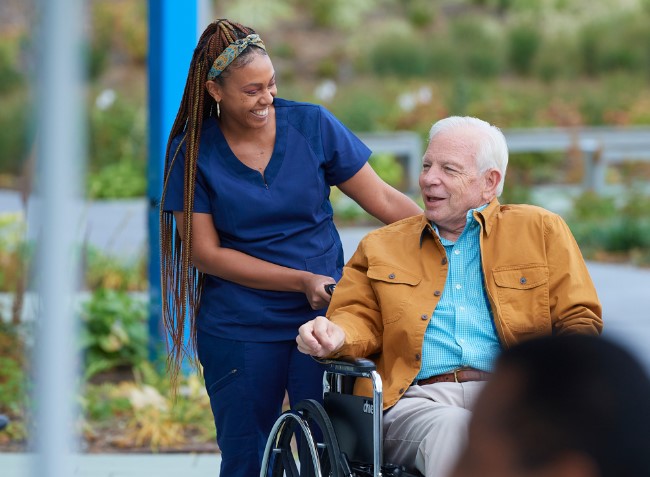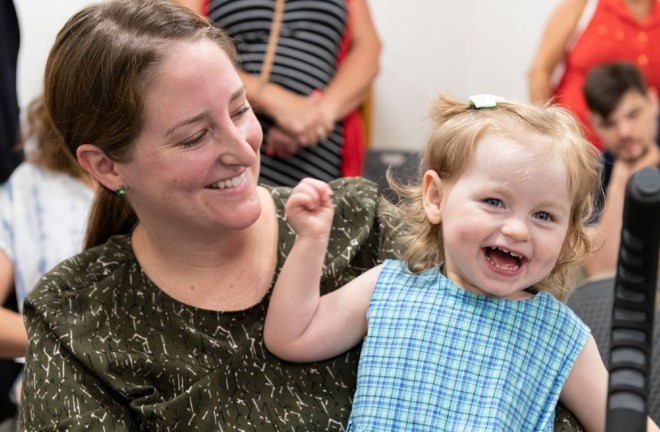Amyotrophic Lateral Sclerosis (ALS): A Comprehensive Guide

Introduction to Amyotrophic Lateral Sclerosis (ALS)
ALS, or Amyotrophic Lateral Sclerosis, is a progressive neurodegenerative disease that affects nerve cells in the brain and spinal cord. Also known as Lou Gehrig’s disease, it leads to the loss of muscle control and eventual paralysis. Despite extensive research, the exact cause remains elusive, making it a significant focus for scientists and healthcare professionals.
Understanding ALS
The Science Behind ALS
ALS targets motor neurons, which are responsible for voluntary muscle movements. When these neurons degenerate, they can no longer send impulses to the muscles, leading to muscle weakness and atrophy.
How ALS Affects the Body
The disease typically starts in the limbs and gradually spreads to other parts of the body. This progression can vary significantly from person to person, but it inevitably leads to difficulties in speaking, swallowing, and breathing.
Types of ALS
- Sporadic ALS: The most common form, accounting for about 90-95% of cases.
- Familial ALS: A hereditary form, comprising about 5-10% of cases, often linked to genetic mutations.
Causes and Risk Factors
Genetic Factors
Mutations in several genes, such as SOD1, C9orf72, and TARDBP, have been linked to familial ALS. These mutations are thought to disrupt normal cellular processes, leading to neuron degeneration.
Environmental Influences
Exposure to toxins, such as pesticides and heavy metals, has been suggested as a potential risk factor. However, concrete evidence linking environmental factors to ALS is still under investigation.
Other Potential Causes
Other hypotheses include viral infections, autoimmune responses, and dysfunctions in protein processing within cells. These theories are still being explored through ongoing research.
Symptoms of ALS
Early Signs and Symptoms
- Muscle twitching and cramping
- Weakness in limbs
- Slurred speech
Progressive Symptoms
- Increased muscle weakness and atrophy
- Difficulty swallowing (dysphagia)
- Respiratory issues
Advanced Stage Symptoms
- Complete loss of voluntary muscle control
- Dependence on ventilatory support
- Significant communication challenges
Diagnosis of ALS
Initial Consultation and Medical History
Diagnosing ALS begins with a thorough review of the patient’s medical history and a physical examination focusing on neurological function.
Diagnostic Tests and Procedures
- Electromyography (EMG): Assesses the electrical activity of muscles.
- Nerve Conduction Study (NCS): Measures the speed and strength of signals traveling between nerves.
- Magnetic Resonance Imaging (MRI): Helps rule out other conditions.
Differential Diagnosis
It’s crucial to distinguish ALS from other neurodegenerative disorders such as multiple sclerosis or spinal muscular atrophy, which can present similar symptoms.
Treatment Options for ALS
Medications
- Riluzole: Slows disease progression.
- Edaravone: Protects against oxidative stress, another contributing factor.
Physical Therapy
Helps maintain muscle function and manage spasticity through exercises and stretching routines.
Occupational Therapy
Focuses on adaptive techniques and tools to assist with daily activities, enhancing the quality of life.
Speech Therapy
Assists with communication strategies and swallowing techniques as the disease progresses.
Living with ALS
Coping Strategies
Adapting to life with ALS involves emotional resilience and practical adjustments. Mindfulness and stress management techniques can be beneficial.
Support Systems
Family, friends, and healthcare professionals play a crucial role in providing emotional and physical support.
Assistive Devices and Technology
Innovations like eye-tracking communication devices and motorized wheelchairs greatly enhance independence and quality of life.
Research and Future Directions
Current Research Studies
Ongoing research aims to unravel the complexities of ALS through genetic studies, biomarker discovery, and novel drug trials.
Promising Treatments on the Horizon
Gene therapy, stem cell therapy, and new pharmacological treatments offer hope for more effective interventions.
The Role of Clinical Trials
Participation in clinical trials is essential for advancing ALS research and finding new treatments.
Impact on Families and Caregivers
Emotional and Psychological Effects
Caring for someone with ALS can be emotionally taxing, leading to caregiver burnout and stress.
Financial Considerations
The cost of care, medical treatments, and assistive devices can be substantial, necessitating financial planning and support.
Resources for Caregivers
Various organizations offer resources and support programs tailored for caregivers to help them manage their responsibilities and well-being.
ALS Awareness and Advocacy
Importance of Awareness
Raising awareness about ALS is crucial for securing funding and support for research and patient care.
Major ALS Organizations
- ALS Association
- Muscular Dystrophy Association
- Project ALS
How to Get Involved
Participate in fundraising events, volunteer for organizations, and spread awareness through social media.
Famous Personalities with ALS
Stephen Hawking
Renowned physicist who lived with ALS for over 50 years, greatly contributing to science and ALS awareness.
Lou Gehrig
Famous baseball player whose diagnosis brought national attention to the disease.
Other Notable Figures
Several other public figures have battled ALS, each contributing to the visibility and understanding of the condition.
Myths and Misconceptions About ALS
Common Myths Debunked
- ALS is not contagious.
- It doesn’t affect mental faculties in most cases.
- It is not exclusively an elderly disease.
The Truth About ALS
Understanding the realities of ALS helps in combating stigma and misinformation.
Preventive Measures and Healthy Living
Can ALS Be Prevented?
Currently, there are no known preventive measures, but a healthy lifestyle may contribute to overall well-being.
Tips for a Healthy Lifestyle
- Regular exercise
- Balanced diet rich in antioxidants
- Avoiding exposure to environmental toxins
Importance of Regular Check-ups
Early detection and intervention can help manage symptoms and improve quality of life.
Community and Support Networks
Online Communities
Platforms like ALS forums and social media groups provide valuable support and information exchange.
Local Support Groups
In-person support groups offer a sense of community and shared experiences.
Role of Social Media
Social media campaigns and challenges, like the Ice Bucket Challenge, have significantly raised ALS awareness and funding.
Conclusion
Amyotrophic Lateral Sclerosis is a complex and challenging disease that profoundly impacts those affected and their families. Understanding its intricacies, advocating for research, and supporting those living with ALS are crucial steps toward making a difference. Continued research, awareness, and community support are essential in the fight against ALS.
FAQs
What are the early signs of ALS?
Early signs of ALS include muscle twitching, cramping, weakness in the limbs, and slurred speech.
How is ALS diagnosed?
ALS is diagnosed through a combination of medical history review, physical examination, and diagnostic tests such as EMG, NCS, and MRI.
Are there any effective treatments for ALS?
While there is no cure for ALS, medications like Riluzole and Edaravone can slow its progression. Therapies can also help manage symptoms.
How can I support someone with ALS?
Support can be provided through emotional support, assisting with daily activities, and connecting them with ALS support groups and resources.
What are the latest research advancements in ALS?
Recent research advancements include gene therapy, stem cell therapy, and new drug trials aimed at finding more effective treatments.






